Planting Seeds of Hope: Growing High Point
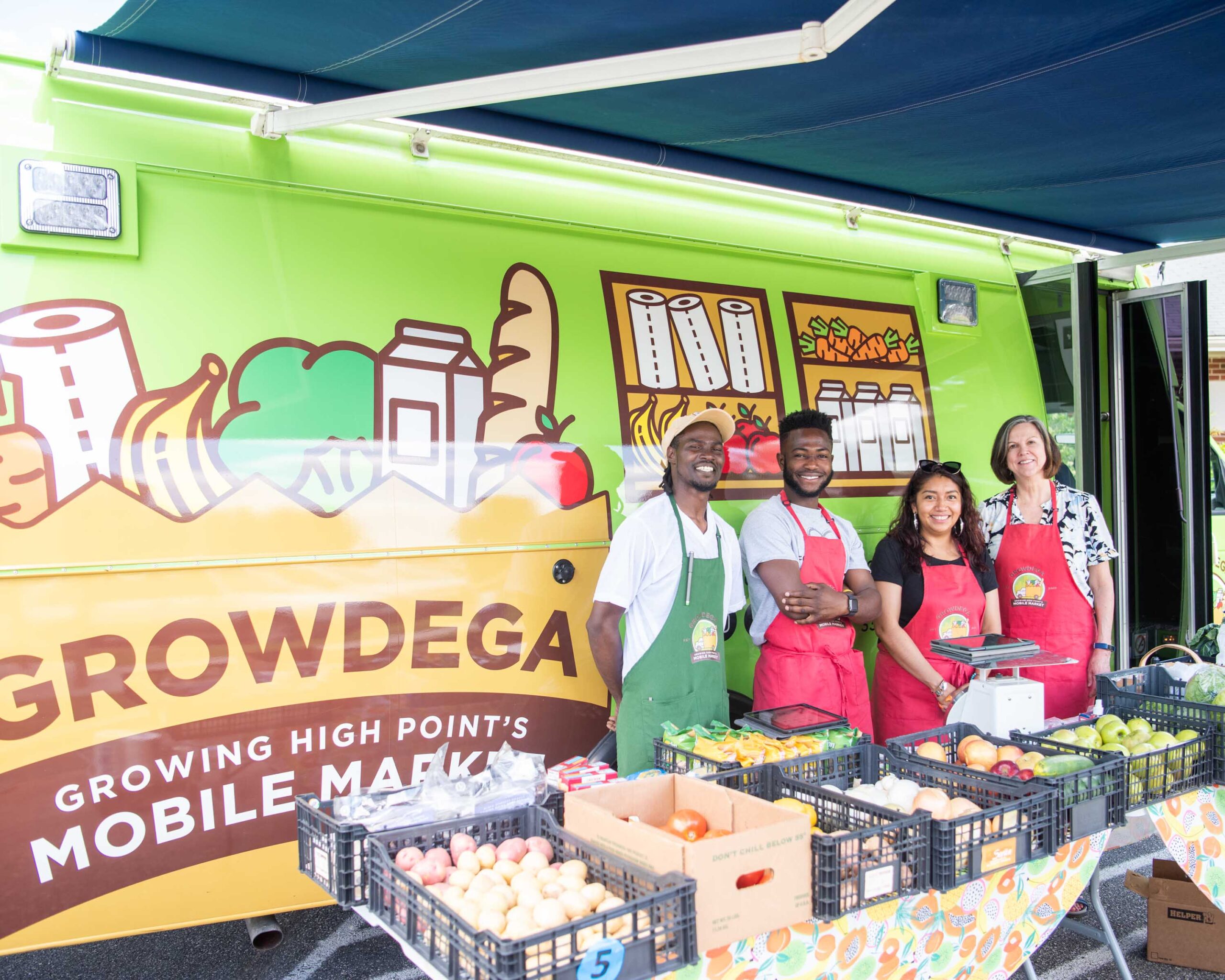
One of our favorite things to discover in our city are the men and women enacting change. When they see the gaps in our community, they choose to be the good, and get busy making a difference so that all of our neighbors can thrive in High Point.
With the team at Growing High Point, you don’t have to look far to see all the good taking place because of their action and leadership in High Point. Put simply, their mission is to transform under-resourced neighborhoods through community engagement, empowerment, and entrepreneurship. And how do they do that? Through one of the most consistent needs in any community: food! North Carolina has an unfortunately long history with food insecurity, but thanks to the work of High Point organizations like Greater High Point Food Alliance, the Hayden-Harman Foundation, D-UP, The Foundation for a Healthy High Point, and now Growing High Point – this has become less and less true in our city.
Since their beginnings in 2016, Growing High Point has grown itself. With more than three programs of service, a well-rounded staff, a housing rehabilitation initiative, and nine different vacant lots converted into community gardens or urban farms, Growing High Point is changing the way High Pointers interact with farming and food.
To discover all the good that Growing High Point is activating in our city, we spoke with Growing High Point’s executive director, Willa Mays. Willa, who has a long history of non-profit work with environmental sustainability, explained how the three components of Growing High Point – urban agriculture, the Food Hub, and Growdega – all empower food security and sustainability.
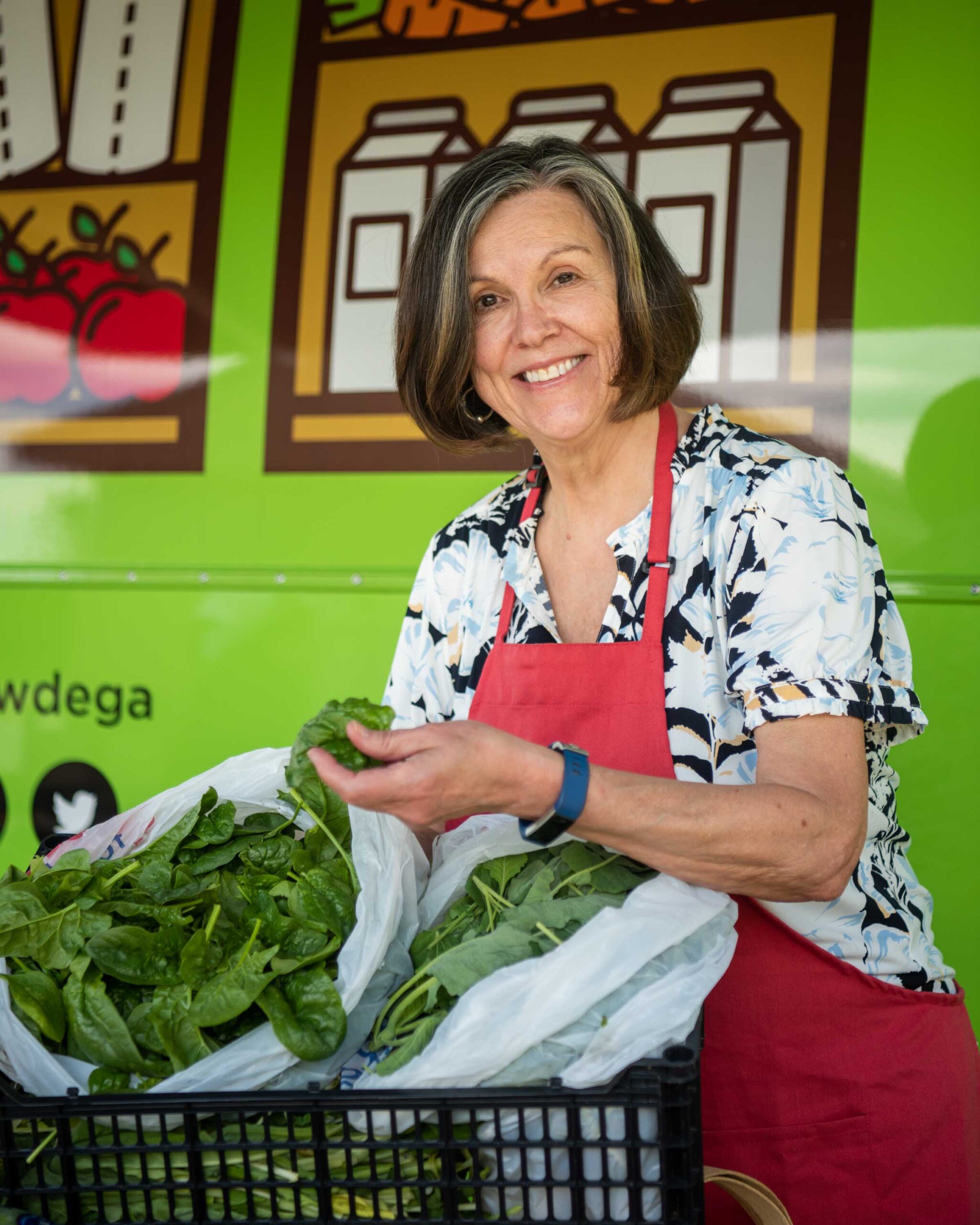
Willa Mays, Executive Director of Growing High Point
“Historically, community gardens are intertwined with racial justice and improving communities,” Willa explains. “You get a lot more out of community gardens than just the healthy, fresh produce. Urban agriculture actually revitalizes communities, provides safe, attractive places where people can network, and creates cohesion in a community.”
So what is urban agriculture? It’s the practice of cultivating and maintaining farms and gardens within a city limit or urban setting. While it may not seem like High Point has a lot of sprawling space and fields for commercial-grade farms, Growing High Point is seeing to it that all obstacles are removed for High Pointers who want to farm. After all, the more farms we have, the more fresh produce and food we create for our citizens.
Willa explains, however, that farming is a much more expensive trade than most people would think – especially when it comes to setting up farm infrastructure within a city setting.
“Connecting a water source to the farm can be a $2,000 to $3,000 cost alone,” Willa explains, adding that costs for creating raised beds and garden plots have only increased with COVID-induced supply shortages. “We’re removing the barriers to people being able to produce their own food and food for other people.”
Through grants and donations, Growing High Point will actually provide infrastructure and support to anyone who wants to start an urban farm. And the City of High Point has demonstrated its commitment to increase urban agriculture and food production in our community by leasing vacant lots at little-to-no cost to Growing High Point for urban farming plots.
The farmers who get a boost from Growing High Point are expected to help volunteer their time and donate a percentage of their produce back to Growing High Point’s other initiatives. The remainder of the produce is the farmer’s to sell.
Urban farmers like Jose Abreu, owner of Twin Oaks Urban Farm and The Budding Artichoke, as well as others like Andre Davis, owner of Drozik’s Produce, are using their business platforms now to actually educate the community on the importance of food sustainability.
“Andre is working with youth in the community,” Willa adds. “He’s truly building community in the area around his garden.”
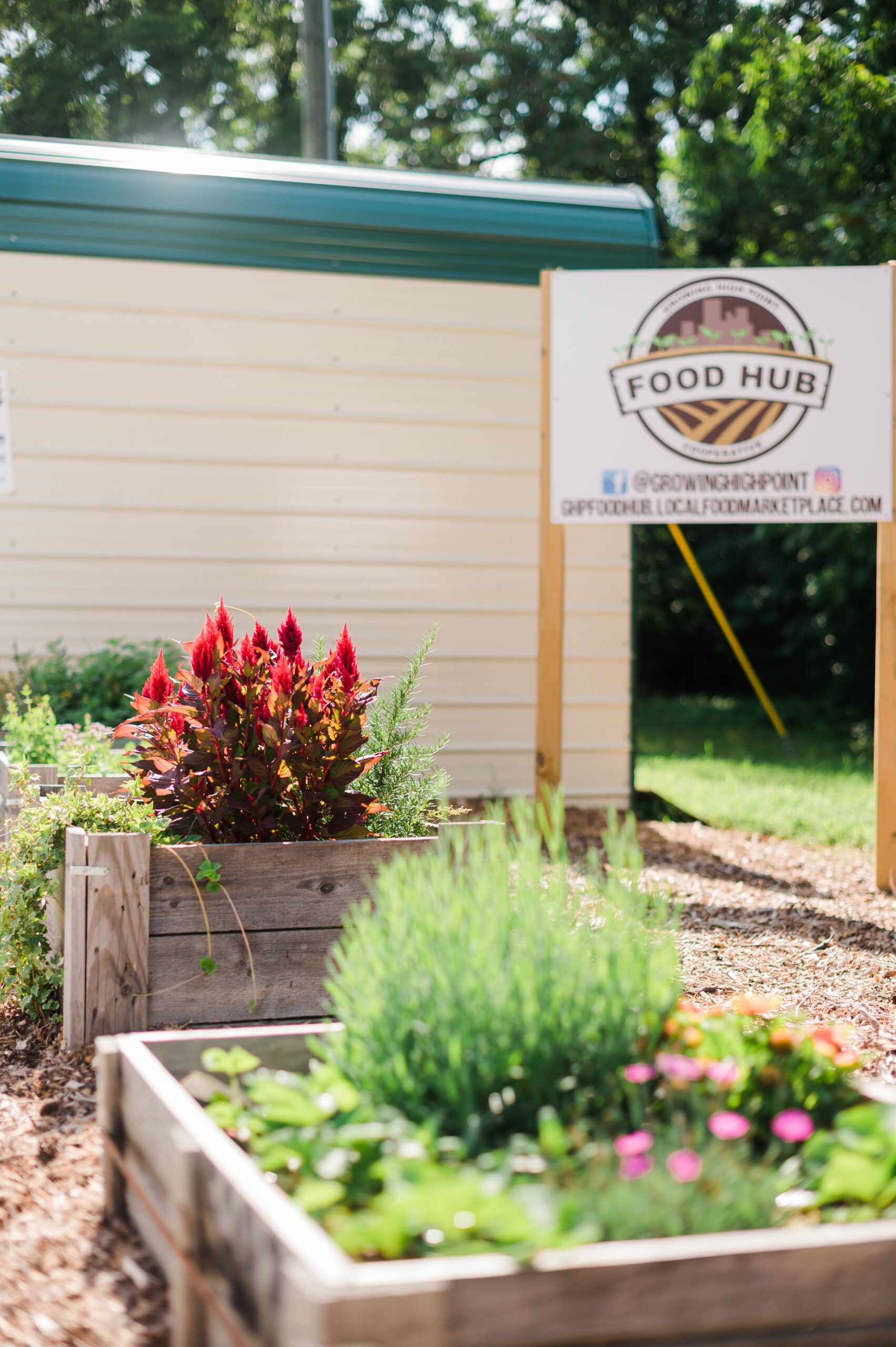
So where do those urban farmers take pounds and pounds of beans, squash, tomatoes, lettuce, and more that need to be washed and prepared for selling? Willa teases that you could wash baskets and baskets of collard greens in your own home, “but man, it’s going to destroy your kitchen!” That’s where the Food Hub comes in, the second program that Growing High Point operates.
The Food Hub provides an area for farmers to wash, package, and prepare produce year-round. Volunteers from the community, like those from the Friendship Table at St. Mary’s Episcopal Church in High Point, prepare much of the donated produce to distribute to senior citizens who wouldn’t otherwise have access to fresh produce. And The Food Hub is continuing to grow, with the hope that soon it will also house an apiary for beekeeping and honey harvesting.
But the most recent program at Growing High Point that is taking this show on the road – literally! – is the mobile grocery store, Growdega.
“Growdega was conceived to provide another source of fresh, healthy, affordable produce to communities that are considered food deserts,” explains Willa. A “food desert” is a location that is more than a safe walking distance (about one mile) from a grocery store. Not to mention, many of our city’s senior citizens may not have the mobility or means to visit a grocery store as often as they need.
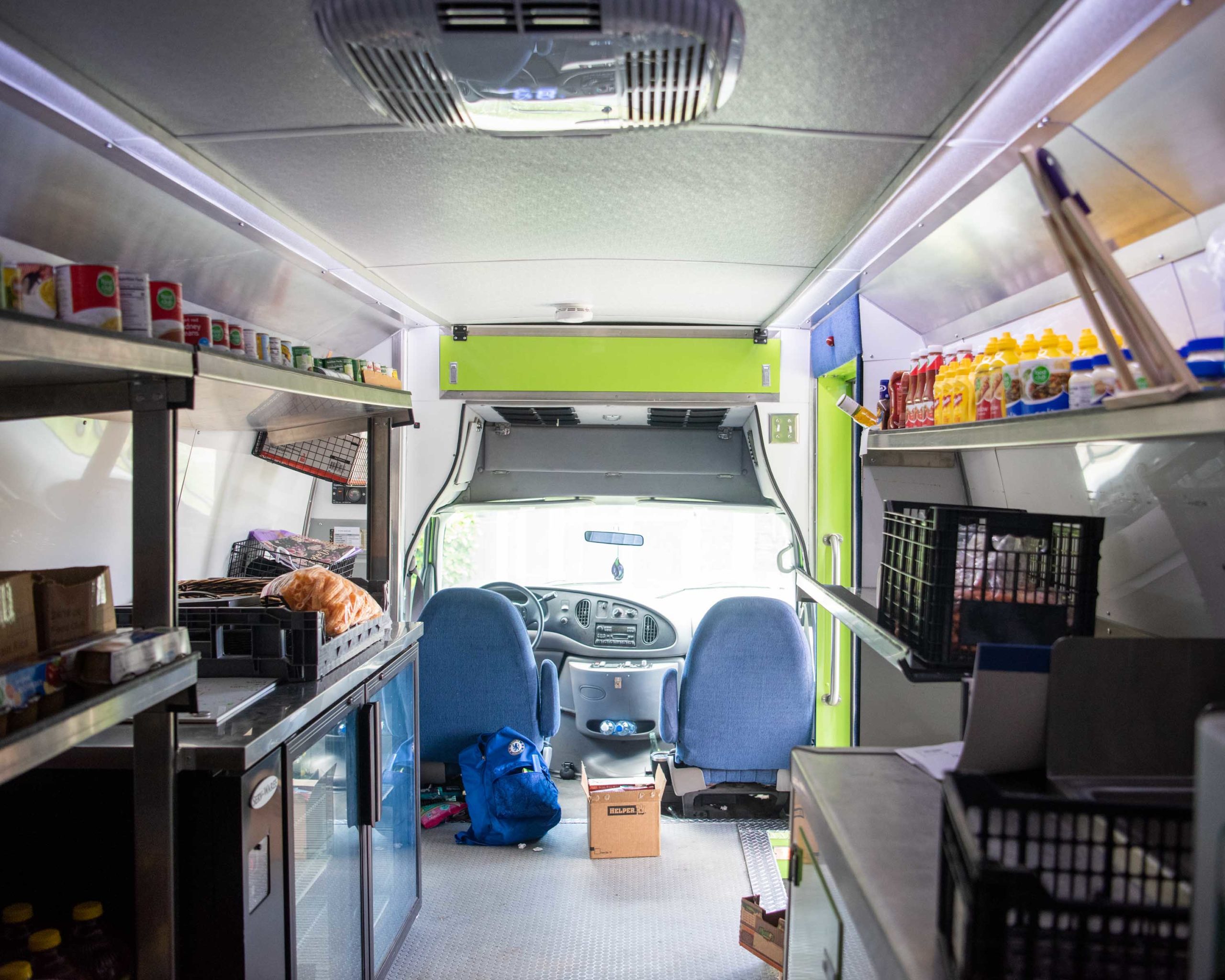
Now thanks to the City of High Point, who donated an old book mobile from High Point Public Library, Growing High Point can do more than just farm-fresh produce; they can actually take it to the people who need it most. Every weekday, the Growdega team drives the truck to two different locations that are classified as food deserts in High Point, and they bring a whole new meaning to “community” gardens.
“At one of our locations, we noticed the ladies who were coming out weren’t just buying their purchases and going back home,” Willa says. “They were gathering around Growdega… It became a social event for them, which is really important for senior citizens.”
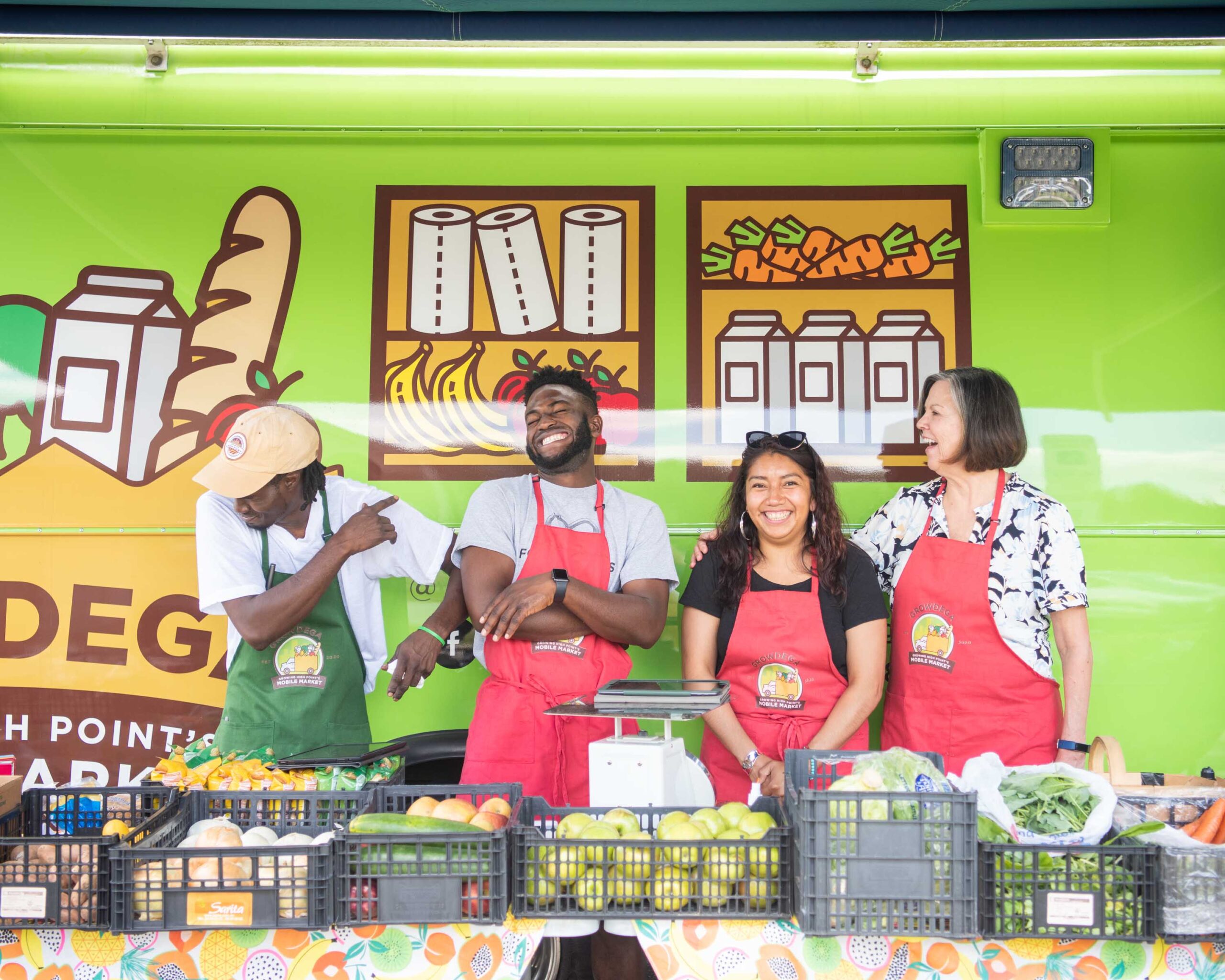
And a huge part of that community building comes from the involvement of Growdega staff members, Donnie, Carolina, and Louie. The three spend their time not just weighing produce and handling sales, but engaging with their customers, providing advice, and getting in a few laughs will they do it.
Donnie Matthews, who stays busy volunteering with a variety of youth and community programs, as well as being a father to his six kiddos, says that the face-to-face engagement at Growdega is what makes it so successful.
“Hand-to-hand contact helps the world go round,” Donnie says, after taking a request from one elderly woman to make sure okra is in stock next time. “It’s a family situation. It’s not a, ‘Hold on, let me call my manager.’”
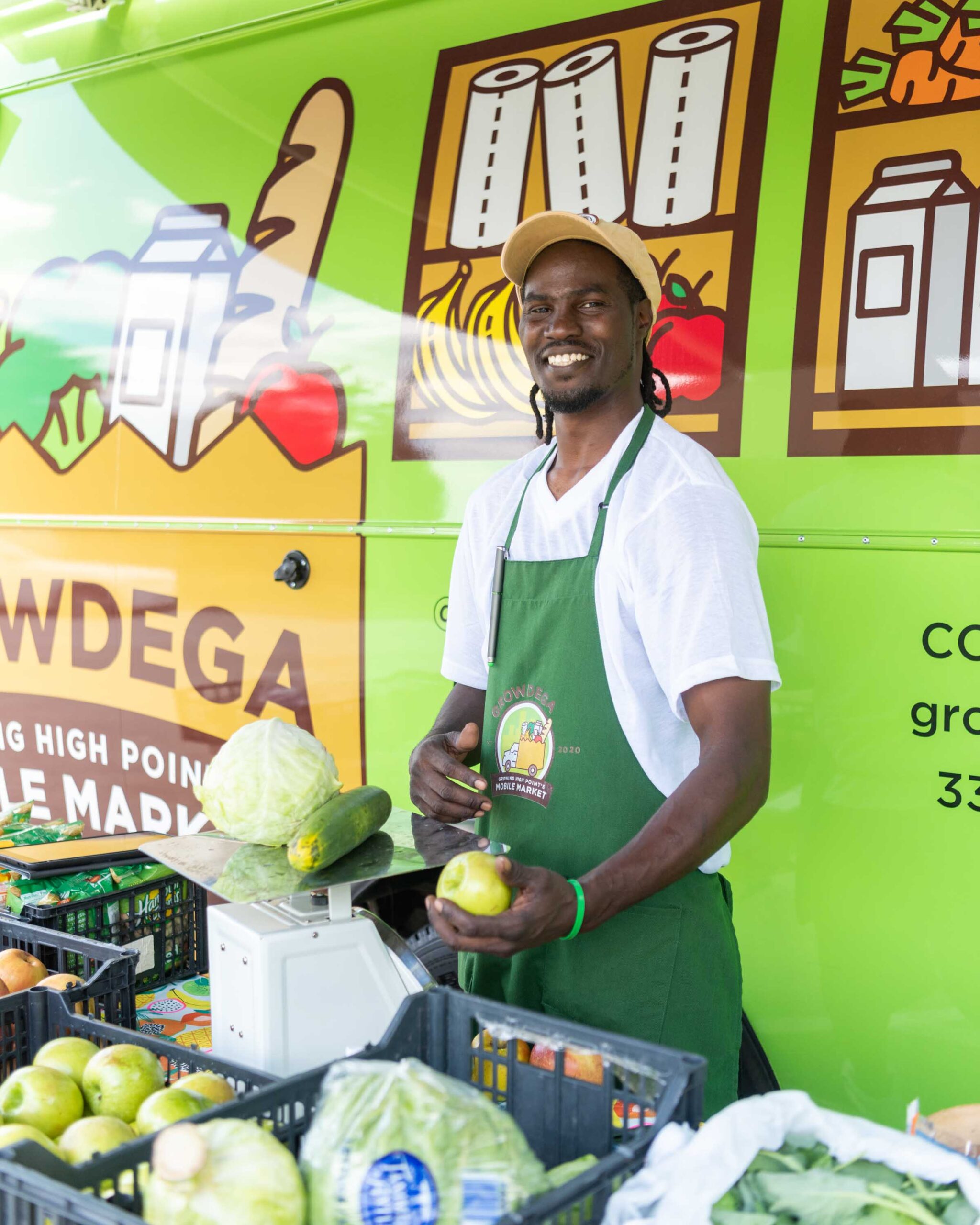
Donnie Matthews
Carolina Vazquez agrees. She found out about Growing High Point through her kids’ involvement at D-UP, and when she found out the organization needed more help, she jumped into action.
“Being able to help out is the best part,” she says. While Growdega already sells their produce at a discounted, affordable rate, Carolina adds that thanks to a grant, they also provide the “Double the Bucks” program that allows customers paying with EBT to save 50% on their purchase. She also adds how many barriers exist for people in food deserts to receive fresh food, especially during COVID-19, when public transportation schedules have been altered or high-risk citizens couldn’t make their way to the grocery stores.
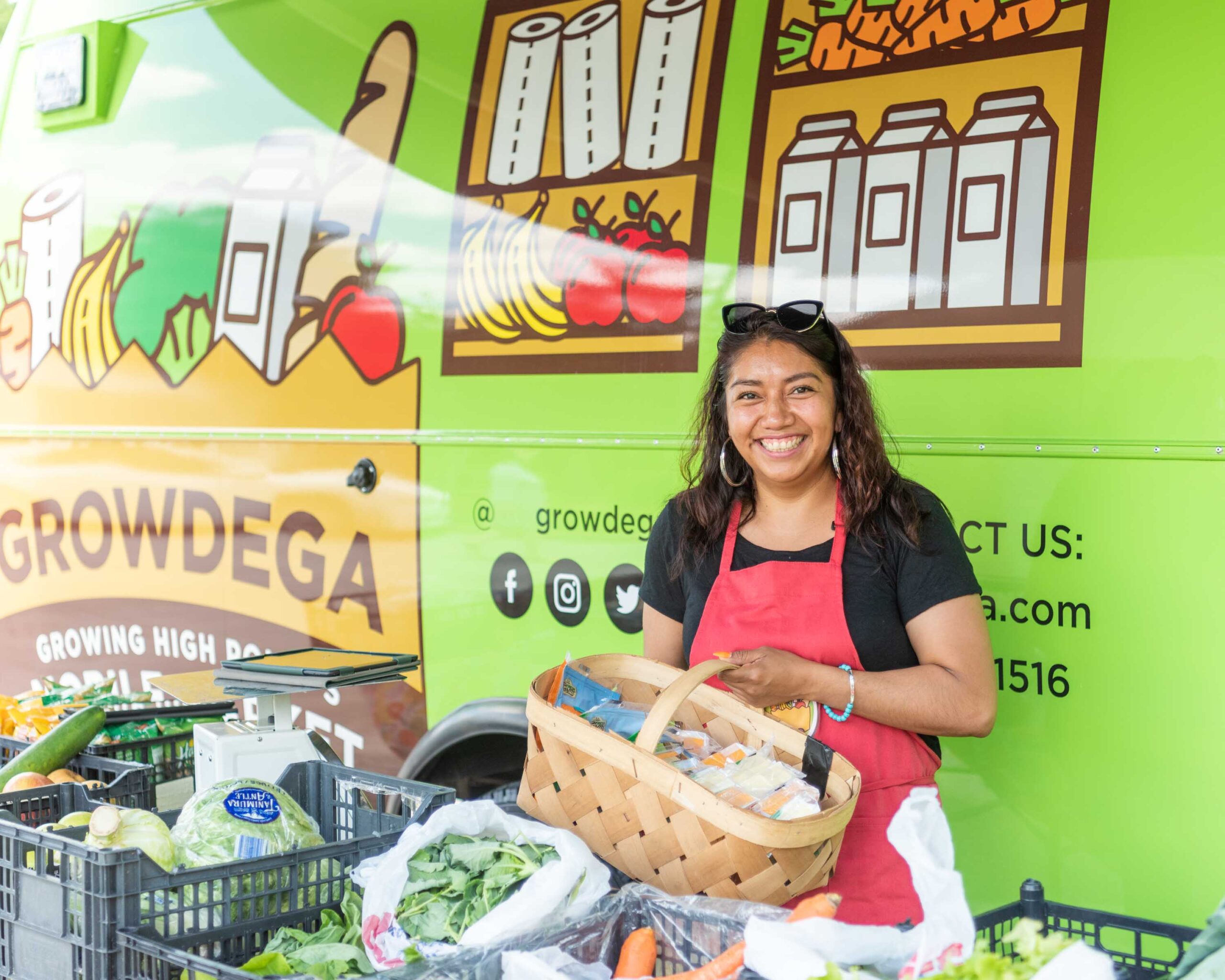
Carolina Vazquez
“I never heard of food desserts until I went to college,” chimes in Louie Gozan, a recent graduate of Guilford College who started working full time at Growdega after school. He originally found out about Growing High Point through the community service he was required to do at school, which he completed with St. Mary’s Friendship Table.
“The purpose this job gives me is that we go to places where people couldn’t go to stores,” he explains “People will find us just walking from bus stations. They see us, ask questions, and become regular customers.”
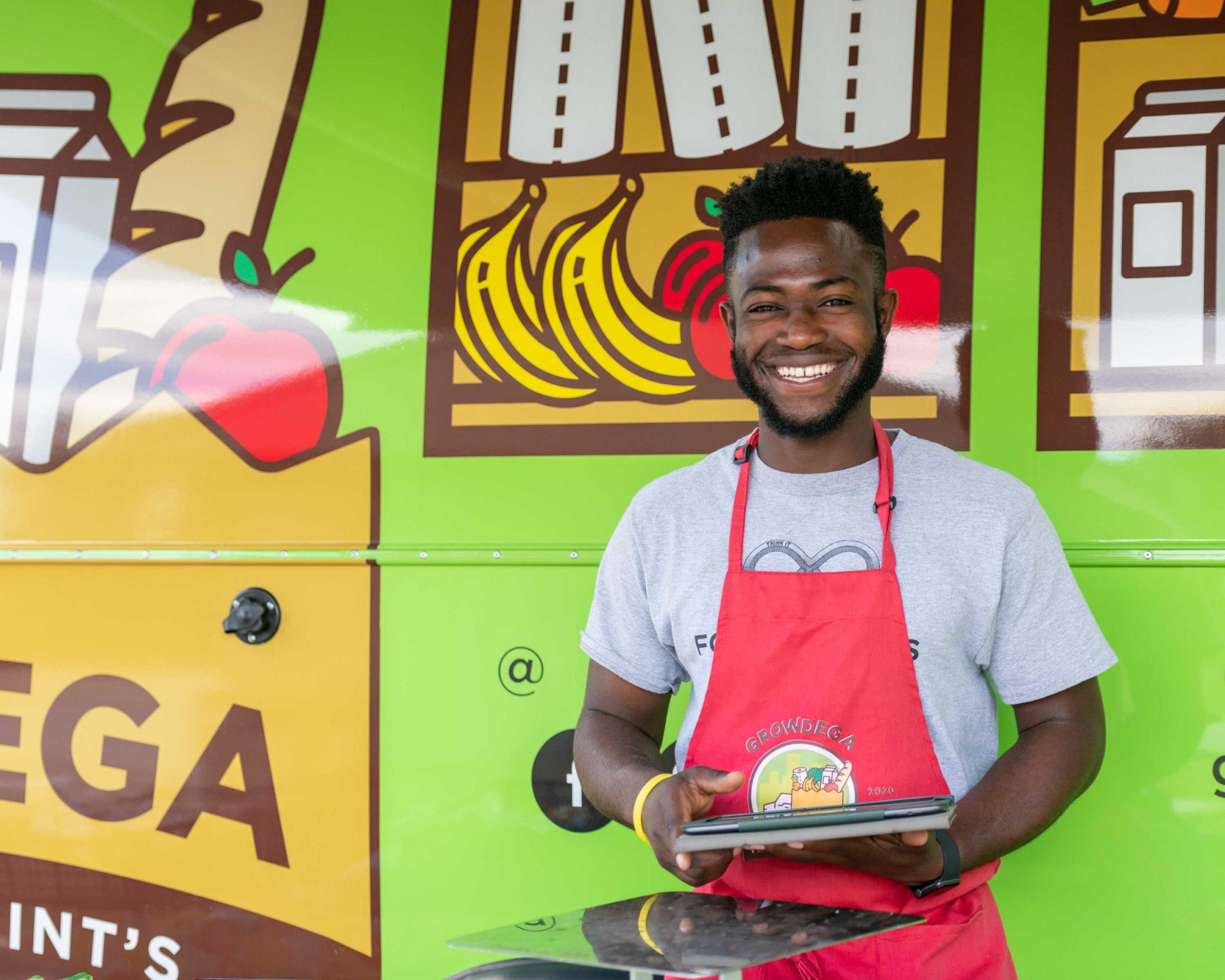
Louie Gozan
Donnie adds that it’s the “regular” aspect of Growdega that increases its success as a vehicle of food security in the High Point community.
“The longer we’re at a location, the better,” he says. “It shows customers we’re reliable, we’re not giving them bad goods, and we’re not over taxing them.”
While Growdega has plans to become a self-sustaining business in the future, right now they rely on the generosity of our community to make sure they can achieve their mission. On the horizon for Growing High Point are youth education programs, community events, and even a grocery delivery service. Not to mention, they are always looking to add to their list of urban farms and volunteers.
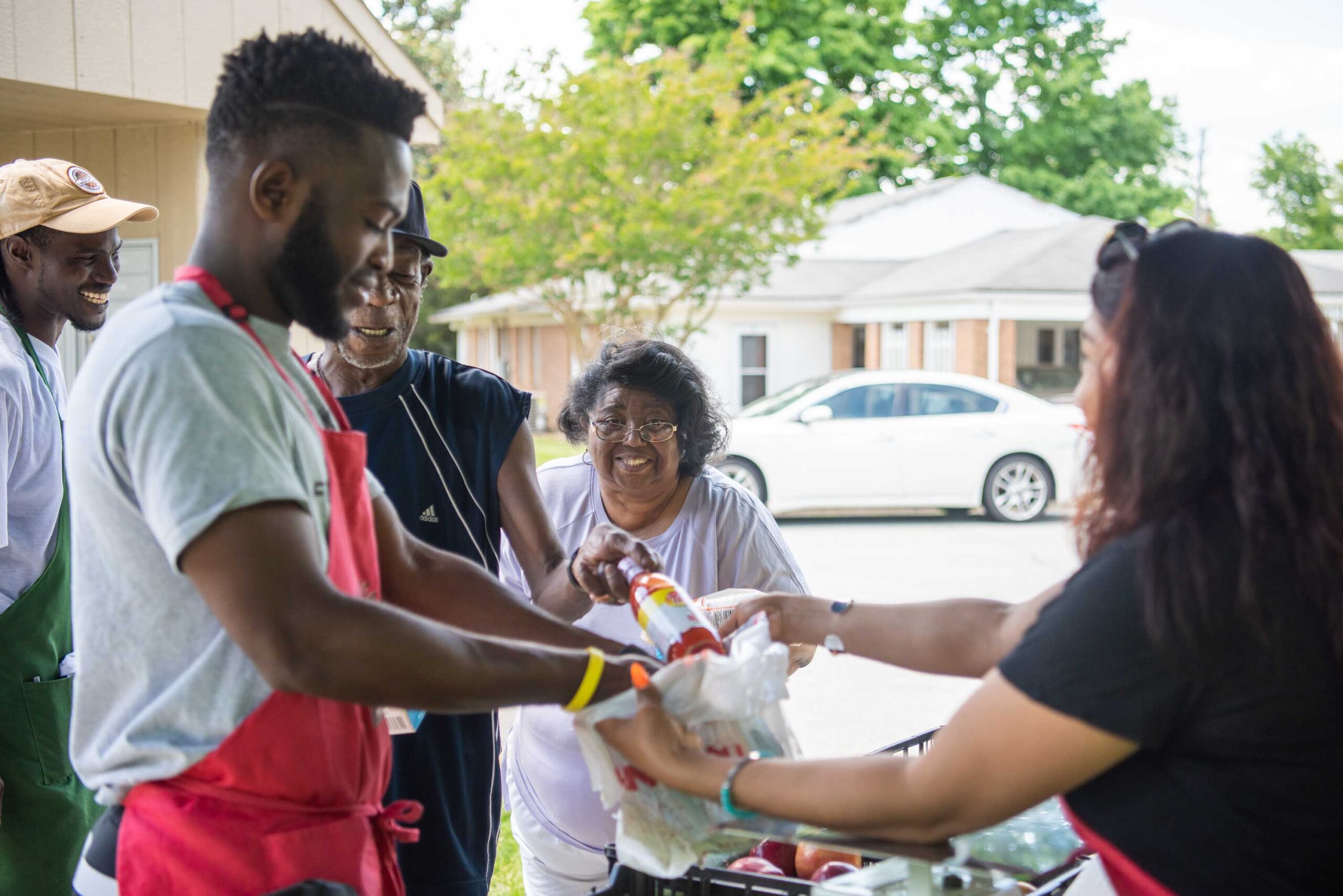
“People are excited about the future,” Willa says. “We are facilitating hope in individuals.”
Growing High Point is also tilling the soil for a healthier future for all of our citizens.
“The number one thing that impacts a child’s life outcomes is where they grow up and what they’re exposed to,” Willa cites. “We are creating natural spaces in the city so that every child can experience what a turnip looks like in the ground, or what a tomato looks like on the vine… Seeing their food and making that connection between food and the health of the body and the mind means everything.”
Donnie would agree, knowing about your food can be the difference in empowering healthy choices, business ownership, and more.
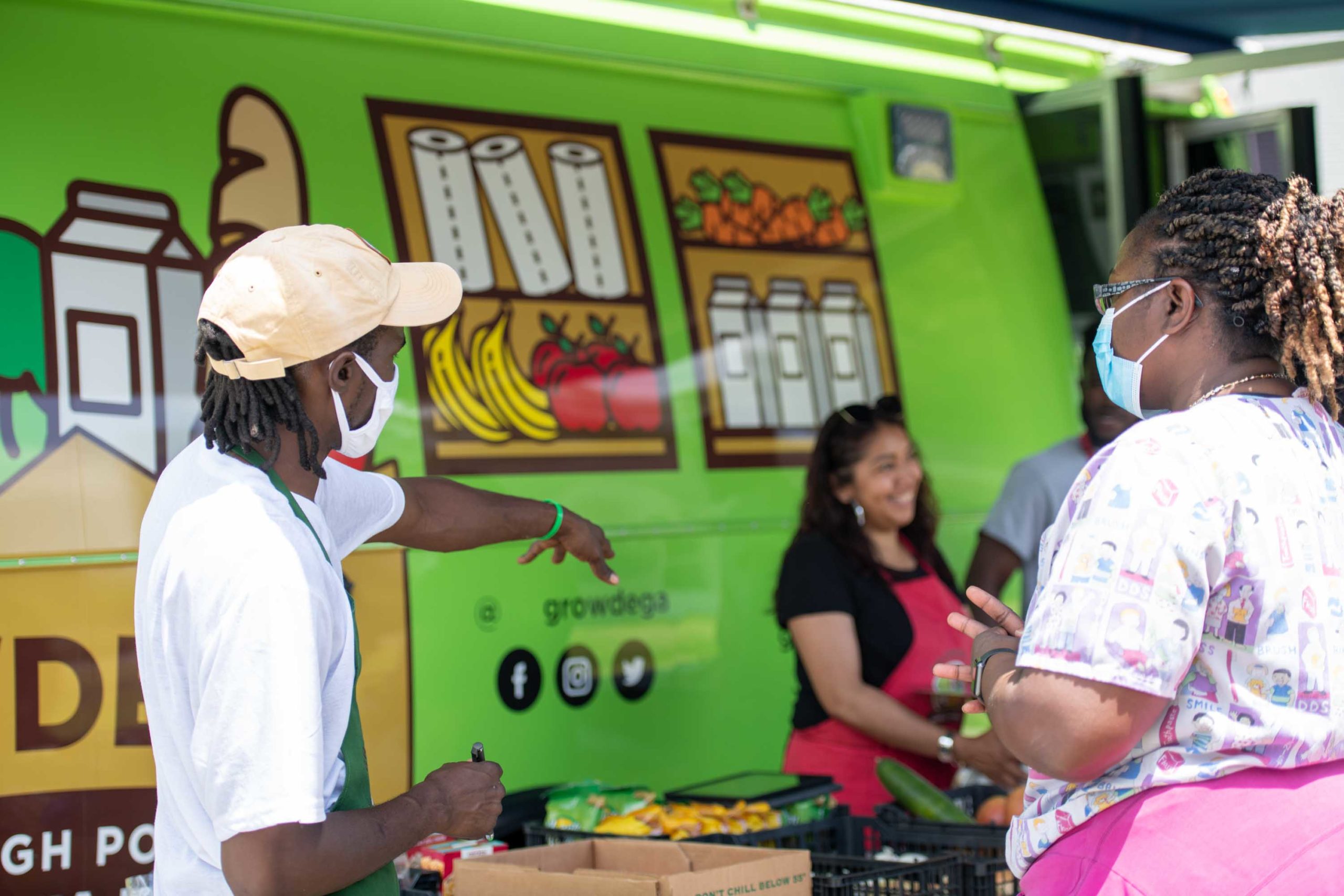
“Our work is important because people don’t understand fresh produce,” he says. “By us bringing it to their doorstep, they’re able to know more about it and enjoy it.”
“Growing High Point is a catalyst all year round,” Willa concludes. “People have that eagerness to grow, and we can make that happen.”
And as the whole team knows, Growing High Point is about more than just planting seeds for food; it’s about planting seeds of hope.
Discover our High Points,
The HPD Team
To find out how you can donate or be involved at Growing High Point, visit their site or reach out to Willa (growinghighpoint@gmail.com).
Photography by Anna Danielle Photography
